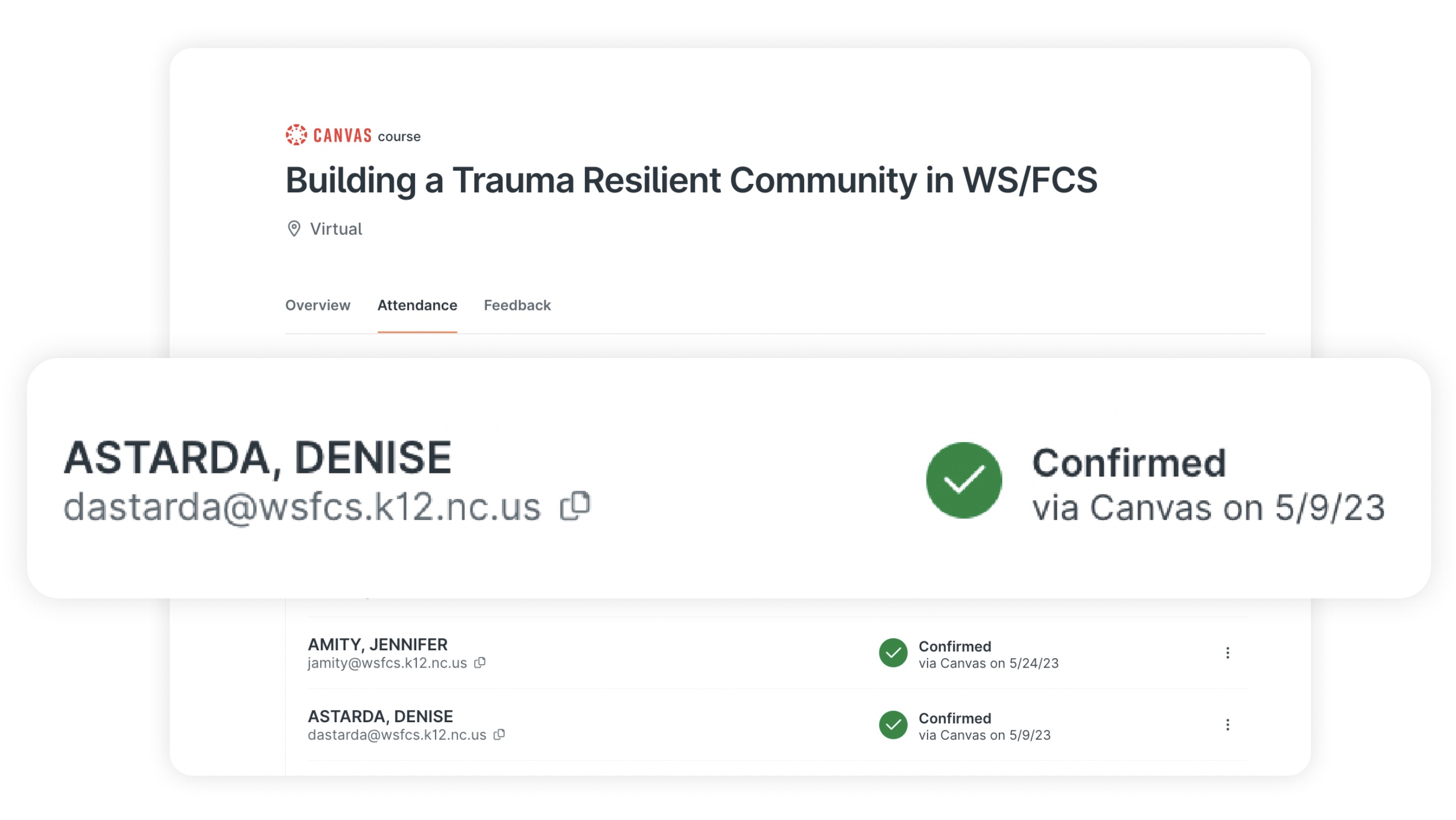“Compared to our old system, KickUp houses everything and takes less of my time to use.”
Switching to KickUp helped North Carolina’s Winston-Salem/Forsyth County Schools streamline the entire professional learning process for teachers. Outdated systems were replaced by a user-friendly way to connect teachers with tailored professional development, integrated with classroom walkthrough and mentoring data. The results? A nearly 20%+ jump in new teacher retention, same-day state CEU credit, and a comprehensive view of educator growth.
To manage professional learning registration and track credits, the district had built a homegrown technology system that only worked while users were physically present in the central office or at a school site. What’s more, PD feedback was gathered through a variety of tools chosen by the facilitator or vendor, making it cumbersome to determine which sessions were valuable and which were not worth doing again.
In North Carolina, teachers must earn 8 CEUs (Continuing Education Units) or 80 hours of professional development in order to renew their teaching license. But “in spring 2020, nobody could access their registrations or attend PD easily, and they couldn’t look up their CEUs,” says Tina Lupton, Executive Director of Professional Learning and Effectiveness.

The district cobbled together a temporary system of ad-hoc professional development through Zoom and tracked it through a constellation of Excel spreadsheets. They then had to manually process and upload all of that data to the state’s credit-tracking system.
Other types of professional support weren’t receiving attention as well. “We didn’t really have a system for monitoring and managing coaching or walkthroughs,” Lupton recalls. “Everyone was doing their own thing, and had their own data with their own questions, so nothing was connected.”
It was time to replace the old system with something that streamlined PD registration and feedback – and could paint a full picture of teacher development by connecting principals, instructional coaches, and mentors to classroom walkthroughs, coaching, and mentoring sessions.
KickUp allows the district to streamline the way it organizes and delivers professional learning, integrating all information about teachers’ mentoring, coaching, and professional development into a single system. The new system includes the same functionality that the district already had – including event registration and attendance – but brings together feedback for those events, as well as walkthrough and coaching logs, all on the same platform.
They focused particularly on the question of new teacher retention. Onboarding the district’s new-to-the-classroom teachers was a particular pain point; Lupton and her team hatched a plan to equip fledging educators with multi-level support that straddled coaching, Teach Like A Champion PD, and real-time classroom feedback.
KickUp’s tight integration with the online learning platform Canvas has made it simple to create and launch new professional development content, adds Lupton. For example, when the state mandated PD on social-emotional learning and the science of reading, district staff were able to quickly create and launch topic-aligned events so groups of teachers could register and participate.
KickUp also integrates with the state’s professional learning system, so CEUs are updated with the state within 24 hours of when a teacher earns them.
Spending less time setting up PD sessions has allowed Jennifer Brookshire, instructional facilitator at Clemmons Middle School, to focus on ensuring that PD content is targeted to district, school, and teacher needs. Clemmons is the district’s largest middle school, with 75 teachers and nearly 1200 students.
Brookshire counts Clemmons teachers’ weekly professional learning community (PLC) sessions as PD, alongside state and district PD sessions and workshops offered by various vendors. She enters all PD sessions into the KickUp system for registration and attendance tracking, and then follows up to make sure that teachers provide post-PD feedback and that they earn the appropriate CEUs.
“Compared to our old system, KickUp houses everything and takes less of my time to use,” says Brookshire.

The district’s focus on new teachers has paid off: retention rates for this year’s cohort jumped to 66.7% in 2022-23 (from 46.5% in 2021-22). In surveys, these teachers rated mentorship and administrative support as the biggest factors influencing their decision to remain in the district.
As school and district staff plan for the next school year, they review KickUp data — including Lupton, who scans through teachers’ feedback on this year’s professional learning offerings. The district’s six area superintendents are also using KickUp’s professional learning data in their discussions with principals about their school improvement plans.
Teacher effectiveness coaches use KickUp to collect data on the type of support provided during coaching sessions, supports needed, and notes and next steps to the coaching meetings. Mentors working with new teachers also use the coaching logs to document their hours for payment, as well as to capture the topics and professional teaching standards they cover with their mentees.
During summer planning meetings, Winston-Salem’s teams use professional learning data gathered this year in KickUp – together with assessment data and surveys – to develop their professional learning action plans for the next school year.
“We will be able to have rich conversations around teacher effectiveness and school improvement by triangulating what teachers are learning in professional learning, how they are being coached, and what we see of instruction through the walkthroughs,” says Lupton.
You can't trust everything you read on the internet.